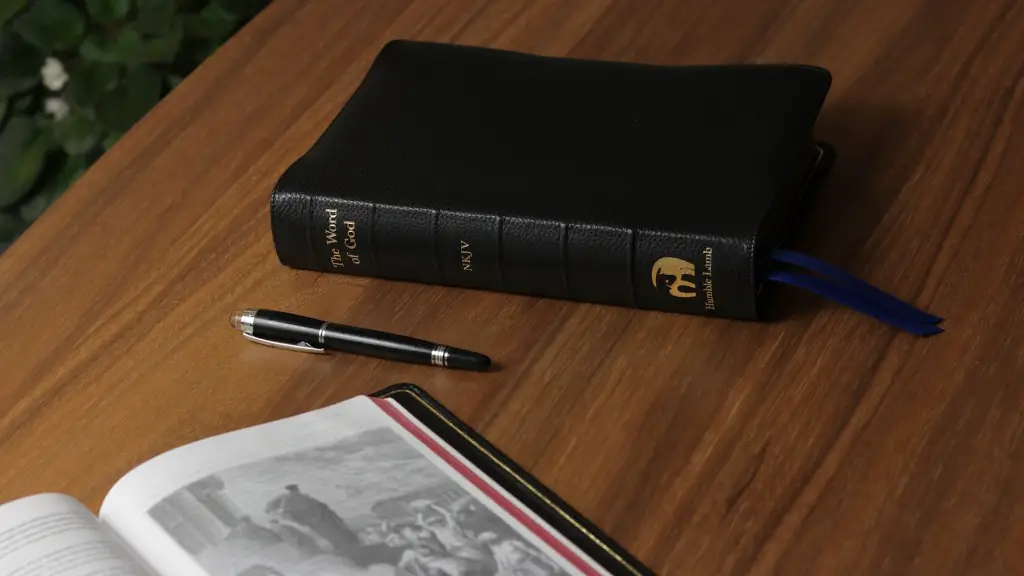Are Tattoos Against The Bible?
Tattoos have been part of many cultures around the world for centuries. In the last few decades, their popularity has grown – especially among young adults who want to express themselves and make a statement with their body art. This has caused many to question whether having a tattoo is permissible according to the Bible. The question of whether or not tattoos are against the Bible is a complicated one and there are several interpretations.
The Bible does not directly mention tattoos or give clear instructions about whether or not they should be allowed. However, there are some passages which may lead to the conclusion that they are not allowed. In Leviticus 19: 28, it is written “You shall not make any cuts on your body for the dead or tattoo yourselves: I am the Lord.” This could be interpreted as a directive against getting a tattoo, but there are other interpretations of this passage.
Theologians debate the interpretation of this passage, as some argue that it only applies to the practice of tattooing for the purpose of mourning the dead, which is forbidden in the Bible. Others point out that tattooing can also be seen as a form of body modification which was often associated with pagan practices, and therefore should be avoided.
In the New Testament, there are verses that call for Christians to be separate from the world and its practices. This has led some to conclude that Christians should avoid tattoos, as they are a worldly practice. On the other hand, others argue that tattoos are not necessarily an immoral practice and can actually be used to express faith and make a spiritual statement.
Ultimately, it is up to individuals to decide what to believe and make the decision that is right for them. For those who are unsure, prayer and seeking guidance from clergy or spiritual mentors can help provide clarity.
History Of Tattoos In Society
Tattoos have a long and varied history in society. Ancient cultures used tattoos to mark people as belonging to their tribe or community, while in other periods they have been used to mark people as criminals or to communicate social status. In more modern times, tattoos have been linked to fashion, rebellion and individual expression.
Today, tattoos are an increasingly popular form of body art. They range from simple designs to elaborate works of art, used to express one’s personality, culture, and fashion sense. Tattoos are taken on by people of all faiths and backgrounds, but the question of whether or not they are in accordance with biblical teachings is still a subject of debate among theologians.
The history of tattoos is complex and interesting, and understanding it can help inform opinions on whether or not tattoos are permissible according to the Bible.
Spiritual Meaning Of Tattoos
Tattoos can also be used to express one’s spiritual beliefs and values. For many, having a tattoo of a religious symbol or text can be a form of devotion and an outward expression of faith. It can also be a reminder of a commitment to a lifestyle or belief system.
For Christians in particular, there are many ways that a tattoo can be spiritually meaningful. Some may choose to get a Scripture verse or image of a cross, while others may opt for an image of an angel or a dove to express the belief in a higher power.
When considering a religiously-inspired tattoo, it is important to do the research and consider whether or not the design is right for you. It is essential to look into the meaning of the tattoo and the context, as tattoos can become controversial when they are not considered carefully.
No matter what your spiritual beliefs may be, it is important to remain open-minded and do the research before making any decisions.
Opinions Of Tattoos In The Christian Community
Within the Christian community, there is a wide range of opinions on tattoos. Some argue that the Bible forbids tattoos and that having one is a sin, while others argue that tattoos can be spiritually meaningful and are allowed. Many Christians are not sure, and it can be difficult to know what the correct stance is.
The important thing is to be aware of the different perspectives and to make an informed decision for yourself. It is important to seek guidance from religious leaders and to pray for clarity on the matter. Prayer can be a useful tool to gain spiritual insight.
It is also important to remember that no one should judge or criticize the choices of others. Everyone has the right to express themselves and make the choice that is best for them.
Physical And Mental Health
When considering any type of body modification, it is important to consider the physical and mental health risks. Tattoos are essentially a wound and involve puncturing the skin with needles, as well as the use of certain chemicals and dyes which can have an effect on the body.
Therefore, it is important to be aware of the potential risks involved, including infections and allergic reactions. It is advisable to speak to a health professional and ensure that the tattoo artist is certified, has good hygiene practices and uses quality equipment.
Mentally, tattoos can be very meaningful and can be seen as a form of self-expression and body art. Nevertheless, it is important to remember that tattoos are permanent so it is important to make sure that the artwork is something that you will be happy with for a long time.
Before making a decision, it is important to consider all of the potential risks and rewards of getting a tattoo and to make a well-informed choice.
Alternatives To Tattoos
For those who are unsure about tattoos or are not ready to take the plunge, there are other ways to express oneself. Body painting is a popular alternative to tattoos, as it is temporary and can be easily removed.
Clothing and jewelry are also great options for self-expression. Accessorizing with scarves, hats, earrings and other items can be a fun way to communicate one’s style and personality.
Another option is to write or draw about one’s feelings and beliefs in a journal or sketchbook. This can be a great way to explore one’s identity, express one’s creativity, and document one’s thoughts and experiences in life.
There are many ways to express oneself and make a statement. Ultimately, it is up to individuals to decide what works best for them and make the choice that is right for them.
Concluding Thoughts
The question of whether or not tattoos are against the Bible is a complicated one and not easily answered. Individuals must take into account their own beliefs, the opinions of spiritual mentors, and their understanding of the Bible in order to make the decision that is best for them.
No matter what one chooses, it is important to remember that there is no “right” or “wrong” answer and each individual should make the decision that is best for their spiritual and mental well-being.





